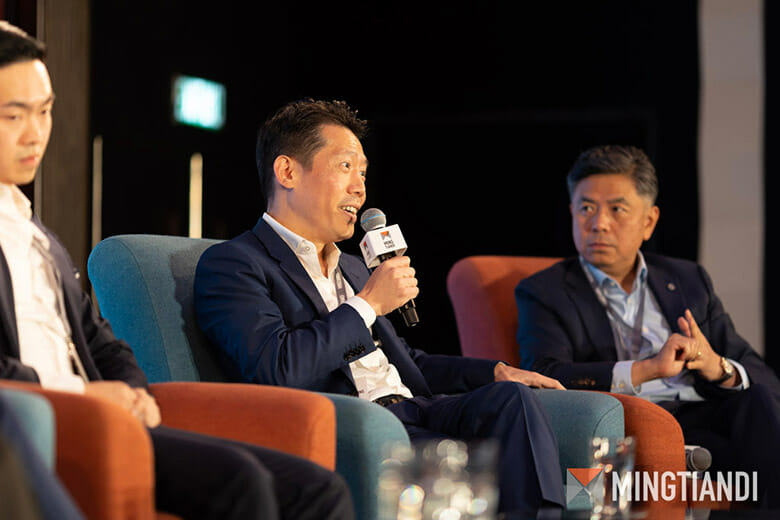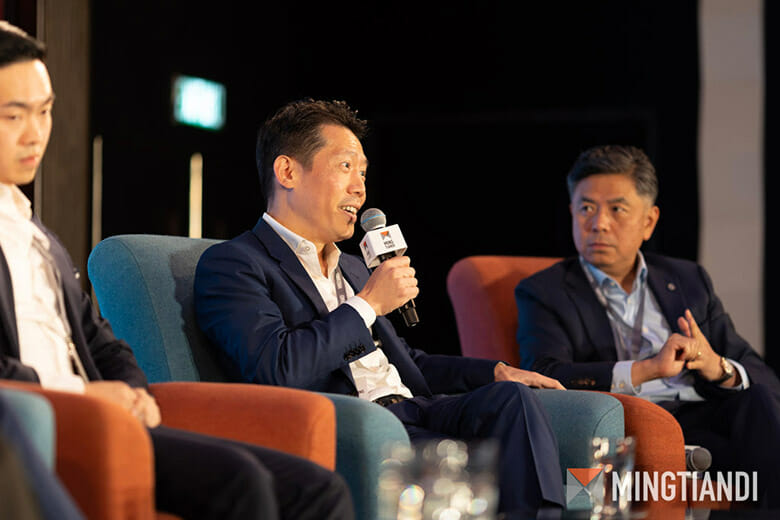Frasers, Vlinker, Forest and JLL See China Economy Favouring Beds and Sheds
China’s maturing economy is providing new opportunities for investors in rental apartments and logistics properties as a more mobile population and growing consumption spark demand, according to a panel of top industry executives speaking at a forum this week.The transformation of the mainland economy was accelerated by the COVID-19 pandemic, according to Chester Foo, head of investment for North Asia at Frasers Hospitality, who sees the shift having added fuel to a shift toward renting homes long-term.
“It is an ongoing trend, but what has changed rapidly over the last three years is the case has been accelerated by COVID,” Foo said. “And I think this is a very important factor because this actually gives a very big change in consumption habits and lifestyle choices.”
Foo was joined on-stage at the Mingtiandi Hong Kong Focus Forum, which was sponsored by Yardi, by Craig To, vice president and head of capital raising at Warburg Pincus-backed rental housing operator Vlinker; Hank Hsu, co-founder and CEO of Forest Logistics Properties; and Eric Pang, head of capital markets for China at JLL.
Shanghai Multi-Family Surge
Foo leads acquisitions, portfolio management and capital partnerships for the North Asia region at the hospitality unit of Singaporean giant Frasers Property. In May, Frasers Hospitality announced a tie-up with Tishman Speyer and Tokyo-based Alyssa Partners to enter Asia’s rental residential sector through separate joint ventures in China and Japan involving S$170 million ($126.4 million) in build-to-rent homes, including 325 units in Shenzhen.

Hank Hsu of Forest Logistics Properties talking China sheds
With over 100 properties across 20 nations, Frasers Hospitality regards the latest acquisitions as complementary to the existing portfolio, Foo said, “pushing us into the broader lodging sector” that includes serviced apartments and rental apartments.
To, who oversees fundraising and investment management at mainland rental housing developer Vlinker, pointed to the personal finance issues that are driving China’s multi-family boom.
“Ownership costs are so high that it creates an opportunity for rental housing, that’s one way to think about it,” To said. “But also, the reason Vlinker was founded last decade and why we shifted from a master lease model to an asset-heavy model is the economics now make sense, the numbers now make sense.”
He credited more accommodative policy decisions, particularly in Shanghai, where JLL’s Pang noted that 369 multi-family projects were in development at the end of 2022, offering 108,000 units to the market.
“I think it is very much a similar situation with my peers in other regions, that they focus on the alternative sectors — now the mainstream sectors — of sheds, beds and meds,” Pang said.
Infrastructure Boosting Sheds
The panel’s shed authority, Hsu, has completed and managed investment transactions totalling nearly $6.5 billion across logistics, industrial and mixed-use properties in China and the US.
Aside from soaring e-commerce, the Forest boss views China’s investments in infrastructure and “megacity clusters” as key drivers of warehousing demand.
“They’re building more roads to connect to more satellite cities, from Tier 1 cities to more Tier 2 cities,” Hsu said.
In addition to Forest’s plans to deploy $500 million to acquire three sites in the Greater Bay Area this year, the company is also bullish on fast-growing “Tier 1.5” cities like Chengdu, according to Hsu.
